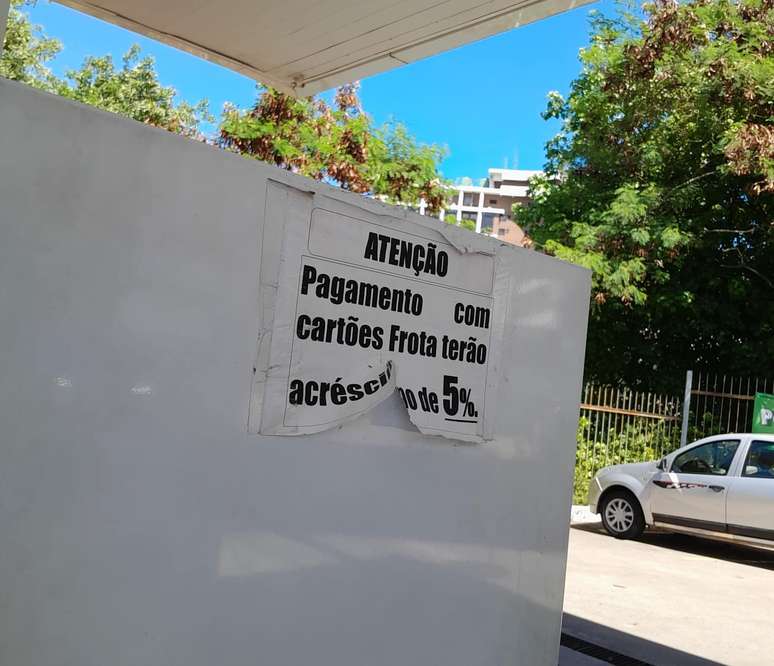Companies that use fleet management cards to pay for fuel bills are the hardest hit
Summary
Fuel consumption represents a challenge for transportation and logistics companies, accounting for 50% of fleet operating costs. The choice of payment method at the time of supply can affect costs, but technology has helped reduce excessive prices.
Fuel consumption continues to represent one of the biggest challenges for transportation and logistics companies, accounting for up to 50% of a fleet’s operating costs, according to industry studies. In 2024, Brazil recorded a record consumption of 66.5 billion liters of diesel and biodiesel, driven by growth in agricultural production and the advancement of activities such as e-commerce, a trend that is expected to continue in 2025.
This scenario is even more challenging given the increases in fuel prices. Last year, four fuels saw price increases, with a focus on ethanol (+11.5%) and gasoline with additives (+6.3%), according to the National Petroleum Agency.
What many don’t know is that, in addition to the normal increase in fuel prices, the payment method chosen for refueling can significantly increase these costs, directly impacting the budget of companies that depend on large volumes of fuel.
You may be wondering: wouldn’t that be illegal? The answer is no. The surcharge is permitted by Law no. 13.455/2017, which authorizes price differentiation based on the payment method. The regulation also requires providers to clearly inform consumers about the amounts charged for each payment method, allowing both individuals and legal entities to evaluate which payment method is most advantageous.
Therefore, Maxifrota CEO Paulo Guimarães explains that the choice of payment method can be a fundamental strategy to reduce costs and optimize the financial efficiency of companies.
However, he says most fleet companies use specific fuel cards, as they are linked to company vehicle expense management systems. In this case the increase can be surprising: it varies, on average, from R$0.10 to R$0.50 per litre.
“Although this flexibility offers benefits to retail, many companies end up stuck with payment systems that, while ensuring cost control, generate excessive prices that compromise the profit margin,” says Guimarães.
Considering the scenario of a fleet of 100 vehicles, each of which travels 2,000 kilometers per month, the impact of the per liter surcharge on fuel supply is significant, resulting in an amount of R$ 150,000.00 when considering the price of petrol at R$ 6.00 per liter and an average consumption of 8 km/l. The total monthly fuel cost for the fleet, without the surcharge, would be R$150,000. With an increase of R$ 0.50 per liter, for example, the total cost rises to R$ 162,500, resulting in an increase of R$ 12,500 per month.
But there’s good news: Technology has helped overcome the impact of this surcharge. An example of this is VEIC, the vehicle refueling card recently launched on the market by the MaxiFrota Group. It is also integrated with a fleet management system, providing direct access for managers to configure and control expenses and adjust fueling parameters as needed. However, unlike traditional solutions, it is the only fleet management card to operate in open mode, with the ELO marking, which allows companies to significantly reduce procurement costs.
“With VEIC it is possible to save up to 30% on supply costs. While traditional fuel management solutions imply an increase in the price at the stations, VEIC offers fuel without a surcharge on the fleet card, i.e. without an increase in the price per litre,” explains Guimarães.
Paulo Guimarães concludes by commenting that technological innovation has been an essential ally for companies seeking to optimize their operating costs. “Technology has come to transform the market, providing tools that help companies make more strategic decisions and, at the same time, reduce costs with greater transparency and agility. In the current scenario, those who do not adopt these innovations run the risk of being left behind,” he concludes.
inspires transformation in the world of work, in business, in society. Compasso, a content and connection agency, is born.
Source: Terra
Rose James is a Gossipify movie and series reviewer known for her in-depth analysis and unique perspective on the latest releases. With a background in film studies, she provides engaging and informative reviews, and keeps readers up to date with industry trends and emerging talents.






-to4l92e9v7fo.jpg)

